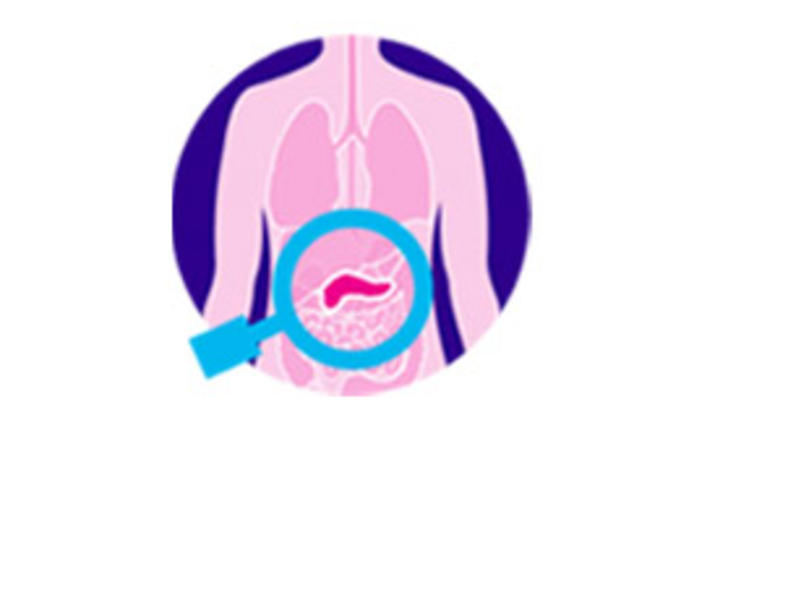Create novel tumour vaccinology approaches that establish or enhance successful immune responses beyond what is revealed by current checkpoint therapy
![]() Cancer Grand Challenges is a global funding platform supporting scientists to take on the toughest challenges in cancer. Through a series of £20 ($25) million awards, we are giving international teams of researchers the freedom to think differently, act creatively and explore novel techniques.
Cancer Grand Challenges is a global funding platform supporting scientists to take on the toughest challenges in cancer. Through a series of £20 ($25) million awards, we are giving international teams of researchers the freedom to think differently, act creatively and explore novel techniques.
The body’s immune system is a powerful force that is constantly fighting disease to keep us healthy. But cancers often work out a way to get around it.
Treatments that reveal cancer to the immune system so that it can recognise, target and kill cancer cells have been showing promise. But they don’t work in all patients, or against all cancers.
That’s because right now we don’t completely understand how the many different parts of the immune system work together, or how they interact with a tumour.
This Cancer Grand Challenge aims to improve our understanding of the immune system and its role in cancer so that new immunotherapies can be developed, and those already available can be used more effectively.
In a sentence: Understand how immunotherapies work so doctors can identify who will benefit from them
CONTEXT
Recent advances in our understanding of anti-tumour immunity and the subsequent development of immunotherapies have revolutionised the treatment of some cancer types. In particular, the use of immune checkpoint therapy to enhance anti-tumour responses by targeting major immune-suppressive mechanisms has shown striking results. Impressive clinical responses have been demonstrated in patients receiving checkpoint therapies, and as a result a number of agents have been approved for clinical use. Some patients receiving checkpoint therapies have gone on to exhibit long-term remission, indicating a successful and sustained host immune response against the cancer. However, this clinical outcome is currently only observed in a subset of patients receiving checkpoint therapies, and has not been observed in all cancer types.
We know that the interactions between cancer and the host immune system are dynamic and regulated by a complex network of biological pathways. The generation of novel insights into these interactions has the potential to elucidate novel vaccinology approaches that can either establish and/or enhance successful anti-tumour immune responses beyond those observed with current therapies.
OPPORTUNITIES AND BARRIERS
Despite the huge amount of excitement and interest in the field, there remains a number of gaps in our fundamental understanding of cancer immunology and the interactions between the immune system and the host, which if investigated, could potentially result in novel and unexpected ways to elucidate successful anti-tumour responses in patients. This is the essence of Cancer rand Challenges.
For example, outstanding questions that could be addressed in the context of a Cancer Grand Challenge include (but are not limited to):
- What are the ‘best’ antigens to establish a successful immune response?
- Can we predict, at an individual patient level, which antigens will be expressed and will elicit a successful immune response?
- How should antigens be delivered to provide the correct activation signals to T/B cells?
By addressing this ambitious challenge, we hope that teams will significantly advance our mechanistic understanding of the anti-tumour immune response and create genuinely novel approaches to vaccinology that pave the way for new therapeutic vaccines for the treatment of cancer. The Panel is particularly looking for a unique perspective on this challenge and would welcome applications from teams that can address it in novel and surprising ways.
VISION AND IMPACT
This Cancer Grand Challenge calls for new and unexpected approaches that delve into the biological pathways underpinning cancer immunology and provide insights into how successful and sustained immune responses can be established in cancer patients (potentially at an individual level), that go beyond those elicited by current checkpoint therapy. It is anticipated that this knowledge will result in ways to predict and enhance the anti-tumour response and therefore greatly increase the proportion of patients that benefit from treatment with immunotherapeutic agents.
Who can apply to Cancer Grand Challenges?
Cancer Grand Challenges is looking for the best ideas and the sharpest minds to transform cancer research.
We welcome applications from:
Global teams
All disciplines
Academic institutions and their commercial partners
Our current funded teams span 9 countries and a wide range of disciplines including analytical chemistry, cell biology and virtual reality.
The Scientific Committee

The Cancer Grand Challenges Scientific Committee provide input throughout the funding process, from setting the challenge and assessing applications to funding decisions and beyond.
